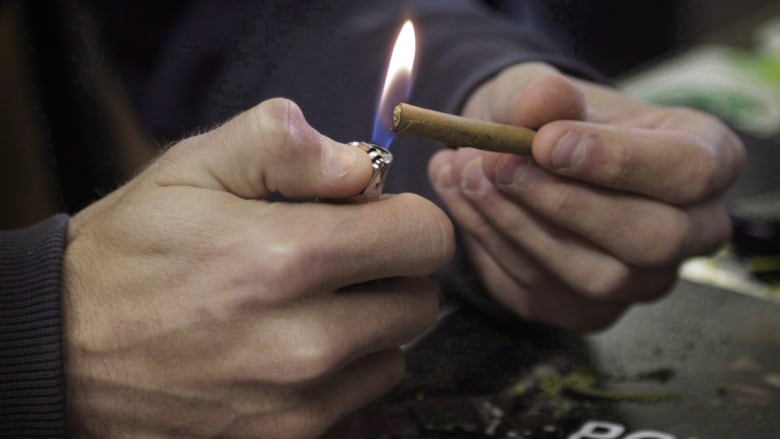Canada should not proceed with the legalization of marijuana as planned
The proposed policy is based on highly dubious claims and grossly optimistic expectations

After the last week or so of avoiding questions about whether marijuana would indeed be legalized by summer as planned, Prime Minister Justin Trudeau confirmedlast Thursday that the process will not be delayed. Some senators have called for a one-year deferment to allow for further consultation with Indigenous groups, but the government's plan at least for now is of full steam ahead.
The recent confusion and ambiguity is only the latest confusion and ambiguity from the Liberals on the marijuana file. From the beginning it was apparent that the move was mendaciously promoted as a means to circumvent organized crime and to protect children. But it should be obvious to everyone that selling legal weed is not going to prevent people from selling illegal weed at slightly below the fixed government price. That contraband marijuana will also be available for sale to children, just as it is now and has been for decades on Canadian streets.
- Trudeau vows cannabis will be legal by summer as senators urge delay
-
Senators recommend delaying cannabis bill for a year to address Indigenous issues
Then there's the process of how the pot legislation made its way through the House of Commons. According to the anti-marijuana group Smart Approaches to Marijuana (SAM), which worked practically alone in opposing the legislation, certain witnesses were prevented from addressing the health committee.
Australian scientist Dr. Stuart Reece was invited to address the group of elected representatives, for example, until he was uninvited likely after the Liberal majority on the committee discovered that Reece had published a paper on how marijuana has been linked to gene mutation. (They initially said it was a timetabling conflict, according to Reece, but never followed up when he offered an alternate slot.) His paper is not exactly an anomaly: there are reams of studies linking marijuana to a host of medical conditions and health problems from gene mutation, to possible infertility in men to schizophrenia. But the health committee mostly just heard the sanguine story of how marijuana was really just a miracle drug.
Assessing impairment
But perhaps most concerning is that the Liberal government and law enforcement cannot say how much marijuana consumed would make someone too stoned to drive. The legal limit for impairment will be over five nanograms of THC in the blood, but to the average person, that means nothing in terms of judging how much they can safely consume before driving.
Draft regulations released by Health Canada last year stated that "the science is unable to provide general guidance to drivers about how much cannabis can be consumed before it is unsafe to drive or before the proposed levels would be exceeded." As such, the government recommends that "the safest approach for anyone who chooses to consume cannabis is to not mix their consumption with driving."
But this is total wishful thinking. What's more, there are some research papers, such as Dr. Rebecca Hartman's research paper "Cannabis Effects on Driving Skills," which clearly definehow much marijuana can cause impairment. Indeed,in Colorado, state guidelines suggest that10mg of marijuana consumed canleadto impairment. Yet in terms of measuring that impairment during roadside tests in Canada, we will have to rely mostly on impressions by and judgment from police officers, which we all know ishardly infallible.

The government's rollout of legalized recreational marijuana also ignores the idea that in some jurisdictions or small towns, the presence of state-sanctioned weed might not be welcome.
In Colorado, many towns have passed municipal bylaws that restrict the sale of marijuana, despite the state's legalization. Part of the reason is that legalization has coincided with a spike in impaired driving and traffic fatalitieslinked to marijuana. In Canada, municipal governments will have to deal with many of the front-line concerns zoning, local law enforcement, monitoring of home growers and so forth all while having had little say in the process and rollout.
And just last month, Colorado Governor John Hickenlooper, noting that crime has risen in his state since the legalization of marijuana at a rate that outpaces the national trend, said he wouldn't rule out re-criminalizing marijuana.
Like much of the political inventory in Trudeau's world, this marijuana legislation is a policy based on highly dubious claims and grossly optimistic expectations. The debate continues over whether pot is a gateway drug to other, more lethal substance abuse, but there is sufficient evidence to suggest that probability. With so many serious concerns still unaddressed, it could be a grave error for the Liberals to proceed with legalization as planned.
This column is part ofCBC'sOpinion section.For more information about this section, please read thiseditor'sblogandourFAQ.
Corrections
- A previous version of this column suggested that some towns in Colorado have outlawed the recreational use of marijuana, despite the state's legalization. This was incorrect; some towns have restricted the sale of recreational marijuana, not its use. As well, the column noted that 18mg of marijuana consumed can cause impairment according to state law. In fact, state officials have only gone so far as to suggest that 10mg of marijuana consumed can cause impairment.May 11, 2018 11:01 AM ET












_(720p).jpg)


 OFFICIAL HD MUSIC VIDEO.jpg)
.jpg)



























































































